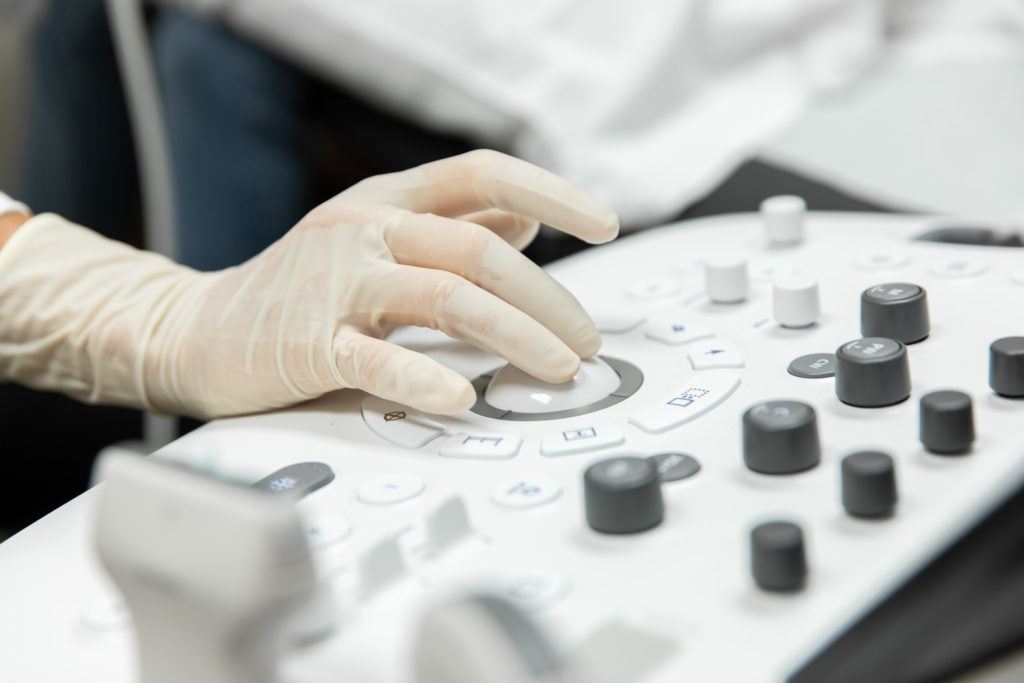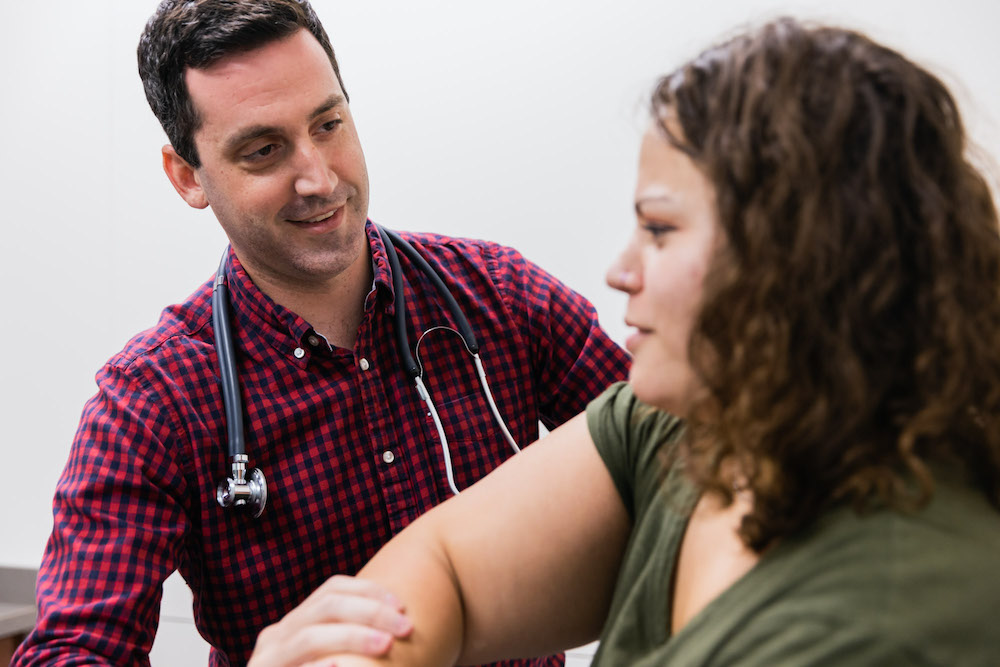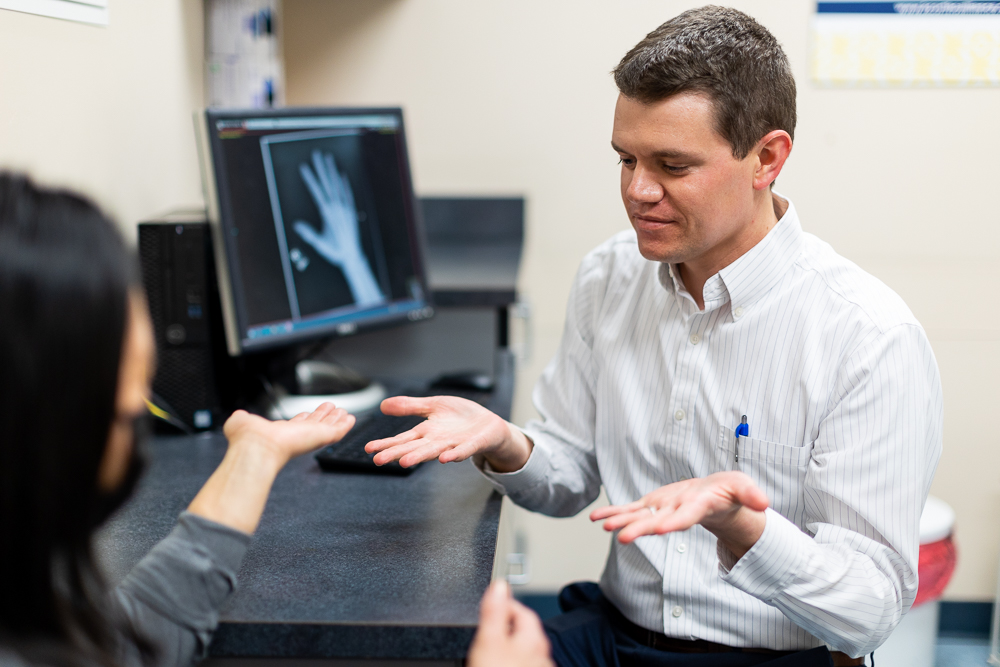

We continue our physician blog series with an informal Q&A with Fermin Santos, M.D., a board-certified physical medicine and rehabilitation physician (also known as an interventional physiatrist) who has been with Dickson-Diveley Orthopaedics since 2010. Dr. Santos is fellowship-trained in Interventional Spine and Musculoskeletal Medicine.
Dr. Santos, please tell our readers a little about yourself and your academic and professional background.
I received my medical degree from the University of Kansas School of Medicine in Kansas City, Kan., where I also completed my residency in Physical Medicine and Rehabilitation. I then moved to Phoenix, Ariz., for fellowship training in interventional spine medicine at The Orthopedic Clinic Association. There, I was trained in the diagnosis, rehabilitation and utilization of interventional spine procedures for the treatment of painful spine disorders.
Today I am certified by the American Board of Physical Medicine and Rehabilitation. In addition to my practice at Dickson-Diveley Orthopaedics, I am an attending physician at several area hospitals – including Kansas City Orthopaedic Institute, Saint Luke’s and the University of Kansas – and I am a clinical assistant professor at the University of Missouri-Kansas City School of Medicine. To help me stay up to date on the latest developments in my field, I am also a member of the American Academy of Physical Medicine and Rehabilitation, American Medical Association, American Pain Society, and North American Spine Society.
I’m also fluent in Spanish, which enables me to provide highly personalized care for ESL patients whose native language is Spanish, just as I do for my English-speaking patients.
What is physical medicine and rehabilitation?
Physical medicine and rehabilitation, or PM&R, is a very unique field because it entails orthopedics, radiology and neurology. Really, we are the specialists who restore function. So anytime someone has had an acute injury or chronic debilitating injury or condition that results in decreased function – like lower back pain, tennis elbow or cubital tunnel syndrome – our goal is really restoration of function.
What inspired you to get into this field?
Monitoring people from the time of injury to full recovery is something that really fascinated me. In many fields, you don’t really get to see, when someone is injured, the progress that they make over time. With PM&R, it gave me an opportunity to see the progress of patients with spinal cord injuries, traumatic brain injuries, sports injuries and more.
What sparked your interest in interventional spine treatment?
In my residency training, I saw a lot of back pain and nerve injuries that caused pain in the upper and lower extremities. I was exposed to treatment options for that and, for one year, did spinal procedures for painful spinal disorders, and that’s how I got interested in the field.
What conditions do you commonly treat?
In my clinic, the most common conditions that we treat are radiculopathies (or pinched nerves), sports medicine injuries, neck pain, and back pain, including spinal compression fractures. In a sense, physiatrists are the gatekeepers for our orthopedic clinic. We try to provide conservative management – whether it’s for acute knee pain, shoulder pain, or back pain – before the patient sees an orthopedist.
In addition to PM&R, I specialize in epidural steroid injections, nerve blocks, radiofrequency ablation, EMG testing and spinal compression fractures.
Do you coordinate care with other healthcare professionals – if so, who?
Yes. Depending on the diagnosis, I may refer patients to orthopedic surgeons if I feel orthopedic surgery is necessary. In PM&R, we really are the team lead, you could say, for a multidisciplinary approach to improvement of function. We work closely with physical therapists, occupational therapists, speech and language pathologists, orthopedists, and neurologists with the overall goal of restoring function and getting people back to where they were beforehand.
What are some goals you have for your patients?
My philosophy when it comes to managing my patients is to do no harm and do what’s best for the patient. My overall goal is to look at the big picture: see what kind of treatments that they had beforehand, and not repeat anything that’s already been done. My goal also is to educate the patient on his or her condition and prognosis, and to approach the treatment from a team aspect. Meaning, if a patient has a condition and is not making any progress, I consult the appropriate individual in our group or beyond, with the overall goal to help the patient feel better.
If you are a patient, referring physician, therapist, case manager or caregiver in need of more information about Dr. Santos or the procedures he performs, please contact us at 913-319-7600.


